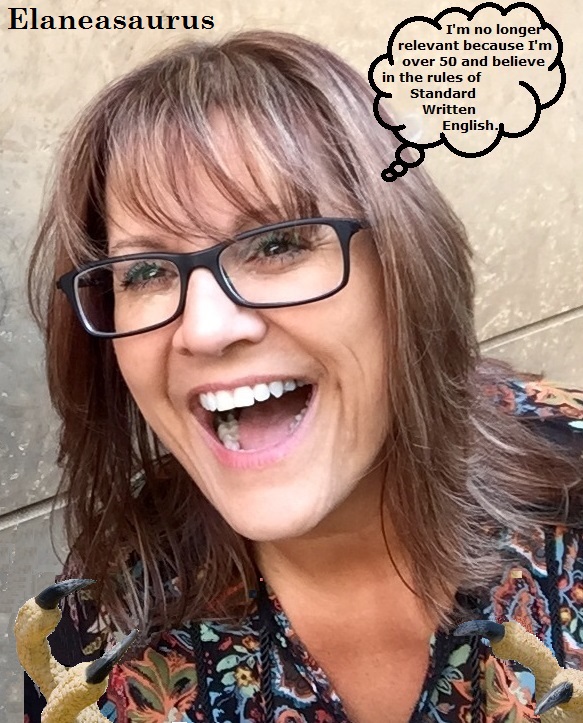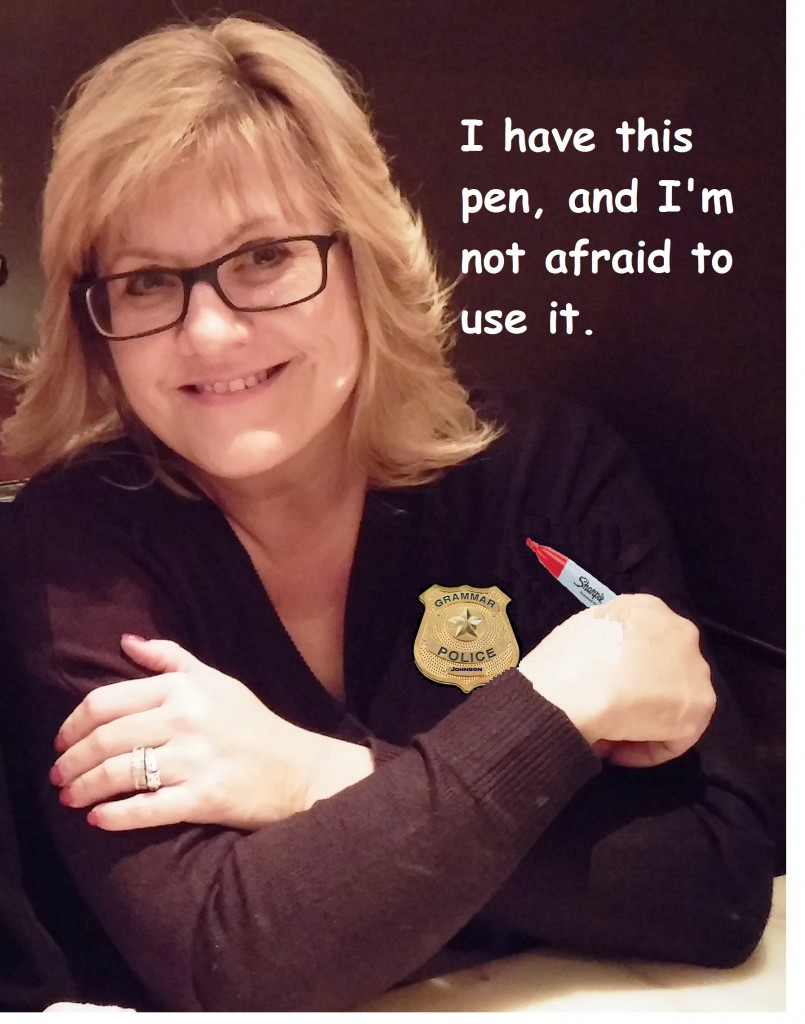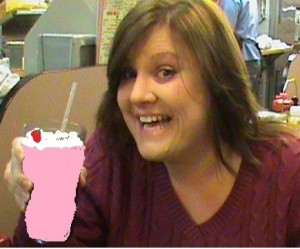 In my position as chief of grammar police, I’m often asked to wax poetic about Standard Written English (SWE), and if you don’t know what “wax poetic” means, just don’t. Please go back to your original search because you obviously clicked here by accident. You were probably trying to spell “Kardashian” or “nude,” which is nowhere near “Superstition” or “Review,” but I rest my case. #damnpeoplelearnhowtospell
In my position as chief of grammar police, I’m often asked to wax poetic about Standard Written English (SWE), and if you don’t know what “wax poetic” means, just don’t. Please go back to your original search because you obviously clicked here by accident. You were probably trying to spell “Kardashian” or “nude,” which is nowhere near “Superstition” or “Review,” but I rest my case. #damnpeoplelearnhowtospell
Anyway, the fine folks here at SR hit me up sometimes for a few grammar tips, and while it might be a teensy bit difficult to pare down my pointers to a “few,” I’ll try.
Common errors that writers make because they don’t read cause me bodily harm. As I’ve often lamented (including twice in previous SR guest blogs), many people learn language primarily from hearing instead of reading, God help us, so, for example, because the contraction should’ve sounds like should of, I frequently see folks write it the second way despite the fact that it causes me to writhe around on the floor in my own fluids like a possessed waif in the presence of a priest and a vial of holy water. The Closed Captions typist wrote “should of” during Seth Meyers’s monologue tonight, and now I’ve got to mop allllll the floors tomorrow. Thanks.
Another grammar-error pet peeve: Writers who use there’s in a plural sitch like the one below, which seems pretty popular in local commercials where everyone is hollering:
“There’s 17 reasons you should come on down to Sofa Kingdom!”
I mean, come ON. First of all, I seriously doubt there are 17 reasons. And second, get your subject/verb agreement right. Sofa Kingdom.
Also, plural nouns created with an apostrophe + s get my dander up:
“Come sample our 10 new flavor’s of frozen yogurt at Burlene’s Yogurt Emporium!” (Are you just trying to see if I bleed?? I do, okay?? Happy?? It’s flavors, you ice cream wannabe. And stop hollering!)
I feel that the death penalty is appropriate for the misuse of there’s and apostrophe + s; for failing to capitalize the personal pronoun, I; for writing snuck instead of sneaked; and for writing nauseous instead of nauseated like this:
I found a piece of chocolate on the kitchen floor and ate it, but it turned out not to be chocolate, and now I feel nauseous.
While anyone who eats “chocolate” off the floor truly is nauseous – which means “causing nausea” – the dadgummed dictionary now considers nauseous to mean nauseated, and do you know why??
Popular usage, that’s why.
The very same reason that snuck is becoming the accepted word to mean sneaked. The very same reason that some nutbags are about to declare that my most cherished incorrect grammar pet peeve is no longer grammatically incorrect! Is everyone at the dictionary on drugs!??
When writers use the plural pronoun their with a singular antecedent, it is just plain wrong. For example:
*Everyone thinks their way is best. (← Noooooooooooooo)
*Everyone thinks his/her way is best. (Ahhh. That’s nice. Even though everyone can’t be the best. There’s only one, and just because everyone – even the losers – gets a trophy for participation doesn’t change things. #damnpeoplegrowapair)
Now, I understand the agony our young must suffer in having to spend the extra nanosecond to say three syllables instead of one, really. There’s no telling how many levels of Mortal Kombat a person could advance if only he or she didn’t have to waste time writing “he or she.”
Obviously, it’s in everyone’s best interest if we bend alllllll the rules of grammar to suit the rising majority. Am I right?
I mean, any day now, SWE will be a thing of the past, gone the way of dinosaurs and dragons except those three that belong to Daenerys Targaryen on Game of Thrones. There will be no need for any more SR grammar blogs from Elaneasaurus; the Chief of Grammar Police will be out of a job and living next to a dumpster behind the Golden Corral. And shoot, any old body will be able to win the National Spelling Bee because we’ll all just spell words any old way we feel! And, texting shorthand will soon be allowed in academic papers. The upside is that papers will be just a handful of letters, so grading should be a breeze. I should be thrilled at this gradual relaxing of rules. Right? Right?



